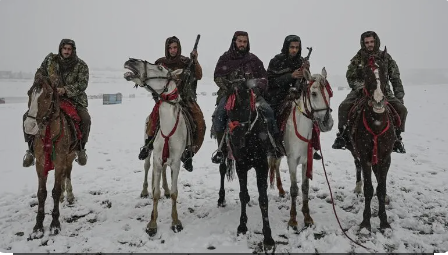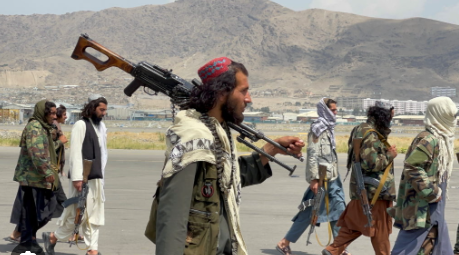It is hard to know what is going on inside the Taliban. But a brief window into the internal tensions opened earlier this year when a number of senior figures, including Sirajuddin Haqqani, the acting interior minister, and Sher Mohammad Abbas Stanikzai, the acting deputy foreign minister, were filmed speaking out against the tight control by Hibatullah Akhunzada, the supreme leader who issues edicts from his base in Kandahar. The public expressions of dissent were squashed and Stanikzai left the country, but the tensions have not gone away

The principal division is between the Haqqani network, which controls Kabul and is strong in the capital and the east, and the Kandahar leadership in the south. The Haqqani network was founded in Pakistan and is backed by Pakistani intelligence. It has been formally allied to the Taliban for more than a decade, but the relationship is now
The Taliban have found it hard to adapt from being a guerrilla group to a government. Many ministries are headed by poorly educated clerics. While operating in the shadows for most of the past 20 years, the Taliban imposed control through intimidation – killing more than 10,000 tribal elders and religious scholars, according to one military source, and mobilizing opinion against the presidency of Ashraf Ghani, calling it corrupt and westernized
Window of opportunity
In government, they wanted full control of the media. They allowed foreign correspondents into the country for their first year in office, but the issuing of visas is now rare. Widely publicized executions and the flogging of male and female ‘adulterers’ are acts designed to secure compliance through fear as well as displaying their tough jihadi credentials to recruits, who might otherwise join Islamic State-Khorasan Province, which has a growing presence
On taking power the Taliban enjoyed a peace dividend amid relief that the fighting had stopped. The new Taliban state was accepted in 2021 by traditional tribal and religious leaders for want of anything better, as the republic collapsed. But that consent was conditional on delivering stability. And as time has passed the Taliban have provoked opposition to their rule by their failure to build an inclusive government, with few non-Pashtuns in any significant roles and no jobs for women.
The failure of engagement
Two years on it is clear that the Taliban have no interest in giving in to demands for a less repressive government, so the current engagement is not working. The US, Britain and the European Union have all publicly stated that they will not back armed resistance against the Taliban, and that was one reason for their lack of support for the Vienna process. But Nargis Nehan, a prominent women’s activist, and former government minister, said: ‘There is no way that you can take back power from the Taliban without military pressure

